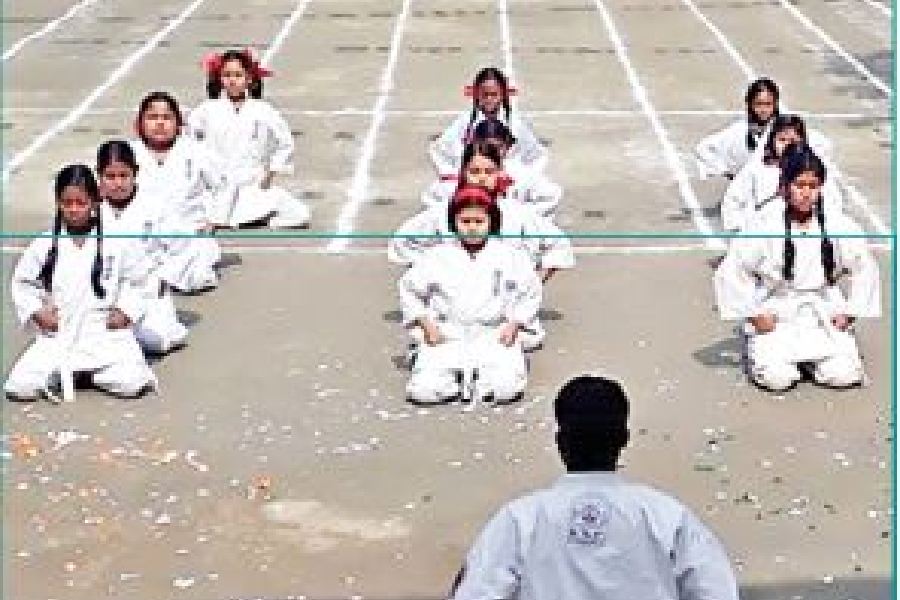Maheshtala Girls’ High School: Nurturing fighters for 75 years


An all-girls government school in Maheshtala in South 24-Parganas where a large section of students have to fight gender discrimination, child marriage and poverty to continue their studies, has turned 75.
The target of Maheshtala Girls’ High School (HS) in its platinum jubilee year is to enable girls “to find an identity and understand their own worth”, said the headmistress.
Over the years, the school has been trying to raise independent girls in the face of “stiff resistance” from their families and pressing socio-economic conditions.
The Bengali-medium school now has 2,300 girls on its rolls.
Unlike many other government schools that boast stellar marks in board exams, Maheshtala Girls’ has a humble yet heroic presence.
For the school established in February 1948, the bigger challenge has been to stop parents from getting their daughters married at an early age and coax them to send their girls to school.
Some efforts have been successful while others got thwarted, said teachers. They have talked to the family members of several girls to prevent early marriages.
But once an early marriage is stopped we cannot shield the girl from the after-effects, said a teacher.
Often such girls are abused both verbally and physically allegedly by the family members for not getting married.
“The fact that their marriage got cancelled is a matter of social disgrace for them. There have been girls who have been beaten up at home allegedly because their teachers came to their rescue,” said Srabani Nandi, headmistress, Maheshtala Girls’ High School (HS).
“We have been able to stop their marriage but we cannot protect them afterwards. They are accused of alerting their teachers,” said Nandi.
Nandi said that there are girls who have to shoulder the burden of running the family right from Classes VII or VIII.
The family has no qualms about it. “It is the norm in many homes,” said Nandi.
“By the time they are in Class VII, they are entrusted with the responsibility of bringing up their younger siblings. The mothers, mostly who are domestic help, go out to work,” a teacher said.
About 75 per cent of the girls in the school are first-generation learners or their parents barely know how to read or write.
“They have to fight poverty and deprivation. We provide mid-day meals even to some girls in Classes IX to XII because they struggle to get proper food at home,” said a teacher.
To mark the school’s 75 years, it has been decided that a counselling session would be held so the girls are encouraged to continue their studies.
The school has planned a four-day program in October, where the focus would be both psychological and career counselling by professionals.
“We keep counselling our girls about why education is important. This time we intend to invite people from outside the school so it would have a greater impact on students,” said Nandi.